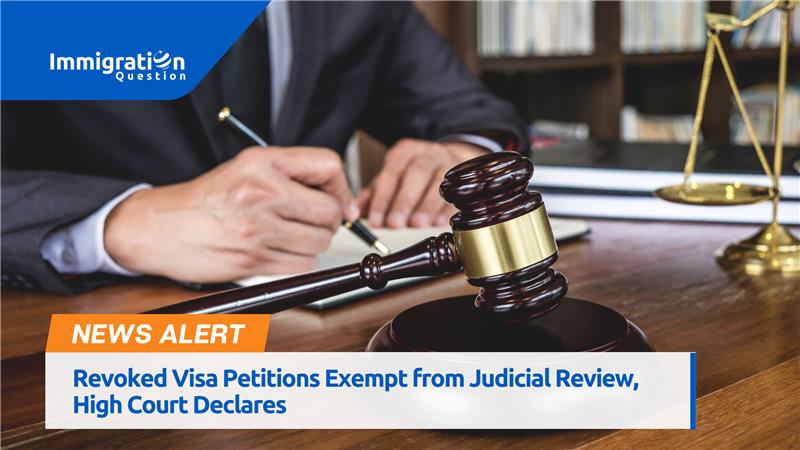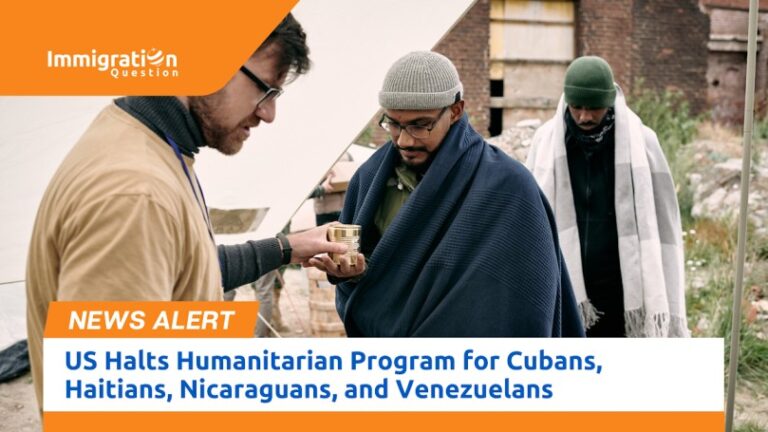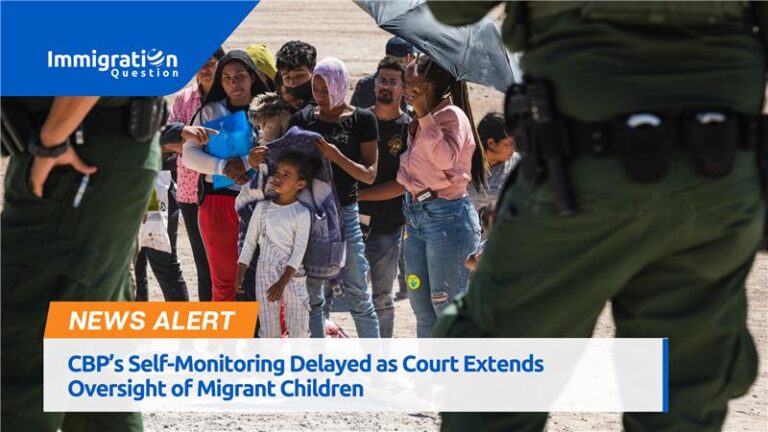Revoked Visa Petitions Exempt from Judicial Review, High Court Declares
The U.S. Supreme Court has unanimously ruled that federal courts lack jurisdiction to review revoked visa petitions. This decision, authored by Justice Ketanji Brown Jackson, upholds the Eleventh Circuit’s July 2023 verdict. The Court concluded that revocations under Section 1155 of the Immigration and Nationality Act (INA) are discretionary actions by the Department of Homeland Security (DHS), rendering them exempt from judicial oversight. Justice Jackson highlighted that Congress provided DHS broad authority to revoke visa petitions for reasons it deems “good and sufficient cause.”
Context of the Case
The case involved a petition filed by U.S. citizen Amina Bouarfa for her Palestinian husband, Ala’a Hamayel, through an I-130 visa application. Initially approved, the petition was revoked in 2017 when U.S. Citizenship and Immigration Services (USCIS) concluded that Hamayel’s prior marriage was fraudulent, citing court records of a monetary exchange. Bouarfa argued that her husband’s previous marriage was legitimate and challenged the discretionary nature of the revocation, asserting that judicial review should apply.
Justice Jackson refuted Bouarfa’s claims, stating, “Nothing in the statute’s text or context limits the secretary’s discretion in this way.” She added that Congress intentionally granted leeway to the agency, sometimes allowing approvals to remain standing as an act of administrative leniency.
Broader Implications of the Ruling
The ruling reinforces the discretion granted to immigration agencies, limiting judicial intervention in visa revocations. This underscores the autonomy of DHS in making critical determinations regarding visa fraud and other matters.
Justice Jackson pointed out that agency discretion could sometimes work in favor of immigrants, allowing room for leniency rather than mandating revocations. For instance, Bouarfa was advised to refile her petition, retaining an avenue to challenge USCIS decisions if her new application is denied.
The decision draws parallels with Patel v. Garland (2022), wherein the Court barred judicial review of facts related to discretionary relief. This strengthens the principle that agencies have substantial discretion in immigration matters, including decisions to approve, revoke, or waive visa petitions.
Legal Representation
Bouarfa was represented by Latham & Watkins LLP attorneys Samir Deger-Sen and Maggie Upshaw. The government’s counsel included Solicitor General Elizabeth Prelogar and other representatives from the Department of Justice.
Bouarfa has refiled her petition, offering a potential path for judicial review if USCIS denies the new application based on allegations of fraud. This scenario illustrates the limited but viable options for petitioners affected by such revocations.
Looking Ahead – Revoked Visa Petitions Exempt from Judicial Review, High Court Declares
The Supreme Court’s decision underscores the expansive discretion of immigration agencies under the INA, limiting the scope for judicial intervention in visa revocations. While the ruling clarifies agency powers, it raises concerns about the lack of checks on administrative decisions that significantly impact families and individuals.
To stay updated and informed, watch our news section or drop your immigration queries on immigration question and get responses from professional attorneys.










